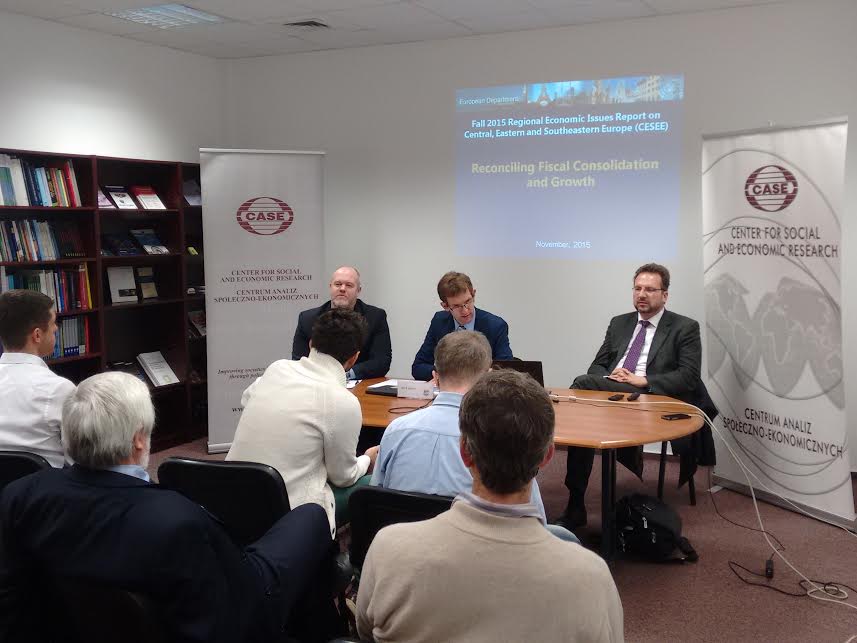Europe will come back to economic growth in 2016. The International Monetary Fund presents its regional report at CASE
Economic growth should return to Central, Eastern and Southeastern Europe (CESEE) next year. However, the IMF report “Reconciling Fiscal Consolidation and Growth” states that there is a possibility that some obstacles can hamper these expectations.
According to the IMF report, economic growth in Central and Eastern Europe - to which Poland belongs - should reach 3.4% this year and 3.1% next year. By contrast, the economy of the entire CESEE region will drop by 0.6% this year and will grow at a rate of 1,3% next year.
During the presentation of the report, the IMF regional representative for the region of Central and Eastern Europe, Bas Bakker, pointed out that Poland is one of the few countries in the region that did not experience recession in 2009 and which has been developing steadily ever since. "If we look at the regional GDP per capita, it turns out that Mazovia is one of the richest regions, and in reality is even richer than any region of France except Paris”, Bakker indicated.
According to the IMF forecast for next year, the Polish economy should grow at a rate of 3.5 %. "This means that Poland is catching up with the development of Western Europe very rapidly", noted the economist. He pointed out that the development of CESEE countries in largely due to EU funds: “In recent years, the intake of those funds increased significantly”.

According to Bakker, despite the fact that the majority of CESEE countries is growing at a healthy pace, Russia and the other countries of the Commonwealth of Independent States remain in recession. The economist explained that the main reason of this phenomenon is the collapse of oil prices, which is crucial for Russia.
In his commentary to the report, Christopher Hartwell, president of CASE, broached the subject of inflation in CESEE countries and the positive effects of low inflationary policies. He also mentioned that what serves the most in the context of economic development is the improvement of institutional reforms and, above all, the respect of property rights.
Christopher Hartwell also highlighted the issue of fiscal consolidation as a guarantee of a stable economic growth.
The IMF Report: Regional Economic Issues, Reconciling Fiscal Consolidation and Growth
